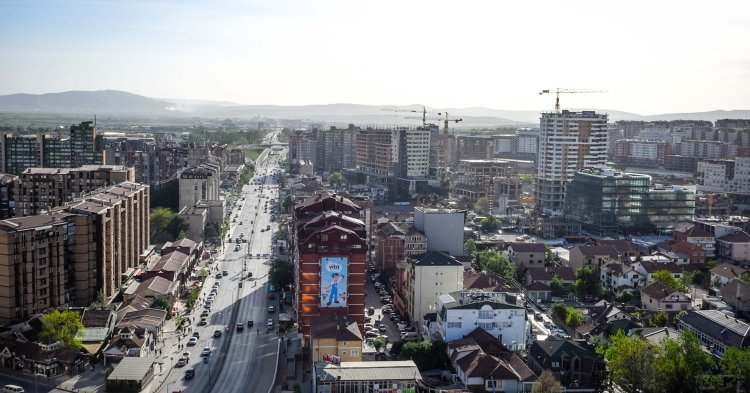In a chain of events following the resignation, Kosovo’s parliament voted to dissolve itself in mid-August, with President Hashim Thaci then announcing that snap elections would be held 6 October.
After 11 years of independence, Kosovo’s path towards visa liberalisation and EU candidacy remains unclear. The collapse of dialogue with Serbia last November after Kosovo imposed a 100% tax on Serbian goods has made matters even more complicated. Serbia officially considers Kosovo to be its province.
However, prospects of restarting talks seem likely with a new Kosovan government coming into power, considering that one of the primary conditions for EU membership is normalisation of relations.
Political parties are now in full swing with their campaigning, and the European Union has once again deployed an Election Observation Mission (EOM) to monitor the early elections, having also done so on the four previous occasions. The EU’s High Representative Federica Mogherini said “Kosovo remains a political priority for the European Union and deploying an EOM [...] confirms our continuing engagement and commitment to supporting Kosovo’s democratic processes”.
Fifth election in eleven years
The October election will be the fifth time that Kosovo has held parliamentary elections since it declared independence in 2008. The country is still yet to complete a full four-year parliamentary term, which highlights the political instability that looms over the small Balkan country.
The previous government was a coalition between Haradinaj’s centre-right Alliance for the Future of Kosovo, the Democratic Party of Kosovo (PDK), and the Social Democratic Initiative (NISMA). Coalition governments are standard in the country which holds elections by proportional representation.
A special feature of the 120-seat Kosovan Parliament is the 20 seats reserved for ethnic minorities. In the last legislature, nine of these were held by the Lista Srpska (Serb List), representing Serbs who make up around 1.5% of the population. Minority seats are also held by Turkish, Bosniak, Ashkali, Egyptian, Gorani and Roma parties.
As with other minorities, among the Serbian minority various parties are contesting for seats. In Belgrade, however, the Serbian government calls for unity behind the Lista Srpska. Marko Djuric, director of Serbia’s “Office for Kosovo and Metohija”, said to Prishtina Insight that “it is extraordinarily important for Serbs in Kosovo and Metohija to be as one body, unified against Albanians and others.” Ethnic Albanians constitute the majority of Kosovo’s population.
The race for Prime Minister
The urgent question that continues to resonate throughout the country concerns the seat of the Prime Minister: Who will be the one capable enough to take the reins?
Three names stand out above the rest in this year’s hectic election trail: Vjosa Osmani of the centre-right Democratic League of Kosovo (LDK), Albin Kurti of the centre-left Vetëvendosje party, and Kadri Veseli of the conservative Democratic Party of Kosovo (PDK).
In addition, outgoing Prime Minister Haradinaj announced that he will be running as the incumbent candidate, representing the coalition between Alliance for the Future of Kosovo and Social Democratic Party of Kosovo (AAK-PSD).
Vjosa Osmani holds the possibility of becoming Kosovo’s first female prime minister. However, it wouldn’t be the first time a woman has held office at a high level in government: Atifete Jahjaga was the country’s President from 2011 to 2016, becoming the world’s youngest elected female head of state at just 35 years old.
Though corruption and the lack of transparency threaten to discourage voters, record numbers of Kosovars living abroad have registered to vote in countries such as Germany, Austria, the United Kingdom and Sweden. Prishtina Insight reports that over 42,000 members of the Kosovan diaspora registered to vote in the election.
Prishtina Insight continues that in the 2017 election, 71% of the diaspora votes were cast for Vetëvendosje, known to be a nationalist and radical party that takes a tough stance on Serbia. In Albanian, Vetëvendosje means ‘self-determination,’ and prime ministerial candidate Albin Kurti is dedicated to transforming Kosovo’s political sphere.
Parliament plagued by criminal charges
In an interview with Albanian Daily News today, Albin Kurti said “people with a corrupt past should stay out of public offices”. “October 6 will be the moment when Kosovo embarks on a path towards economic development and the rule of law.”
A number of candidates standing for Parliament have skeletons in the closet. For example, Kosovo 2.0 reports that the conservative PDK’s list of candidates features Xhavit Haliti who is being charged for physical assault done inside the Assembly last year, and Rrustem Mustafa who “was convicted of war crimes in 2013”.
The former Prime Minister Ramush Haradinaj’s coalition contains 14 members on their list with indictments on charges like corruption. Even Albin Kurti’s Vetëvendosje itself has five candidates with indictments.
Across the board, then, Europe’s newest country has a desperate need for transparency and stability so that trust in politics can be restored. At the elections, the question on citizens’ minds will be whether a new vote can provide change in the right direction, or whether Kosovo will continue on a path riddled with corruption.


Follow the comments: |
|
